Health
MakImS-Mak BSSR Newsletter December 2023
Published
7 months agoon
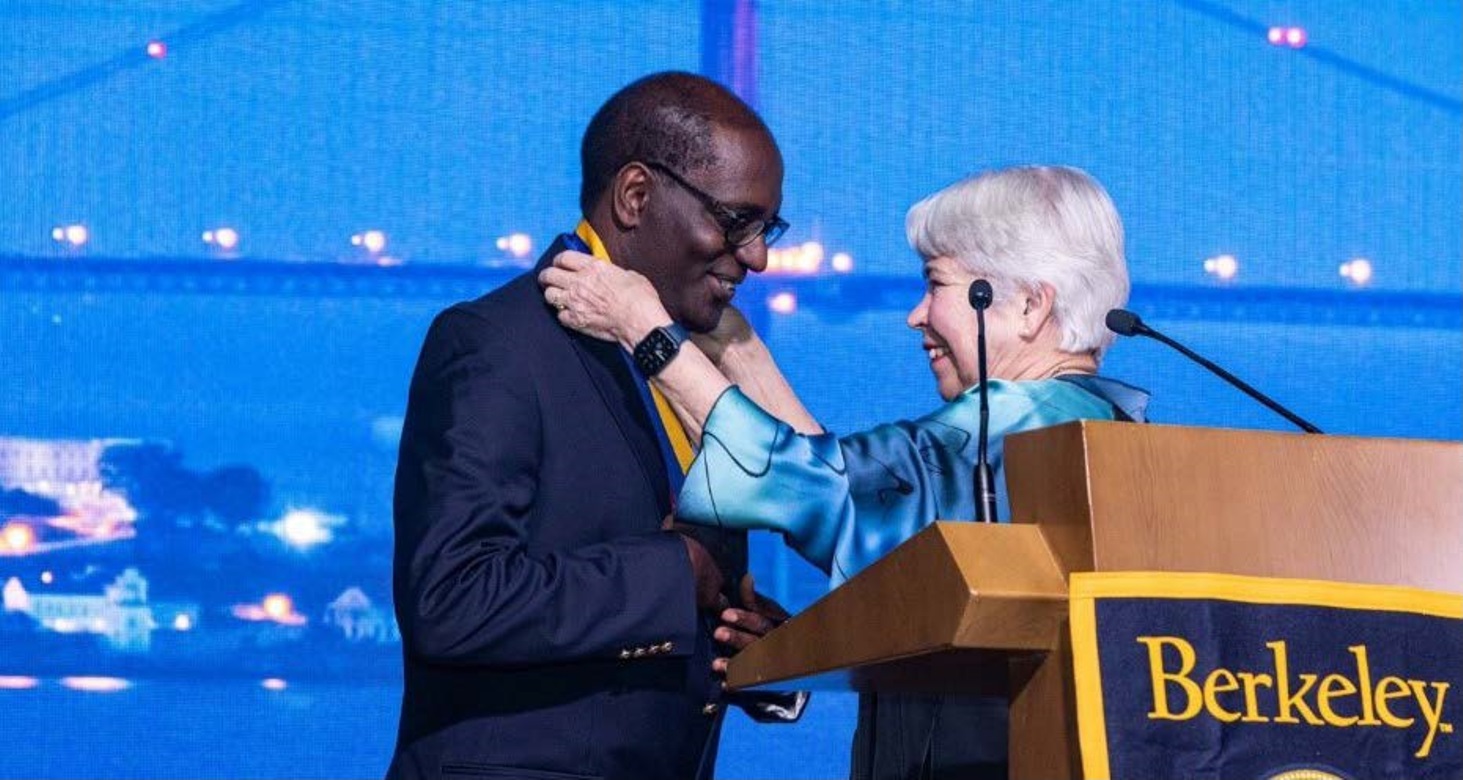
Strengthening Implementation and Behavioural Social Sciences in HIV research
Local healthcare providers see the impact of HIV/AIDS, its associated comorbidities and stigma across different age spectrums daily. As research into the development of an HIV cure continues to advance globally, the field has expanded to include implementation science and behavioral social sciences research.
We know that HIV/AIDS is intricately interwoven with an individual’s behavior and social context. Therefore, addressing it solely through biomedical interventions such as drugs and vaccines would be falling short of bringing the epidemic under control. Involving aspects of behavioral and social sciences is critical in helping us to understand how health attitudes, social cognitions and personal habits shape one’s decisions and practices as regards HIV prevention and treatment.
Under the Makerere University Behavioral Social Sciences Research (BSSR) program, we are training a number of early career researchers in order to leverage on the benefits of BSSR to lower HIV incidence and increase treatment coverage rates. As reflected in the various stories shared in this newsletter, fellows research on issues such as the interplay between alcohol use and HIV care is helping to integrate evidence based social behavioral approaches into biomedical care.
Similarly, implementation science is an expanding field within HIV/AIDS research and public health practice. Through it, researchers aim to close the gap between theory and practice by addressing barriers that delay uptake of proven health interventions. Through the Makerere University Implementation Science (ImS) Program, more than 50 young scientists are being trained to optimize the public health impact of efficacious interventions such as test-and-treat and pre-exposure prophylaxis (PrEP) for eligible populations. In this newsletter, you’ll acquaint yourself with the ImS program aims, activities and fellows’ research.
As our fellows on the BSSR and ImS program continue to excel, we envision enhancing capacity for HIV research and care in Uganda and Africa at large. I am pleased to present to you the novel ImS/BSSR newsletter that brings you exhilarating insights into the programs’ activities and achievements. Enjoy your reading!
Highlights
- Prof. Moses Kamya Awarded the Elise and Walter A. Haas International Award
- Prof. Kamya was awarded for his outstanding contribution in the field of research and teaching infectious diseases with a particular interest in malaria and HIV. He is past chair of the Department of Medicine and past Dean of the Makerere University School of Medicine in Kampala, Uganda. He is a founding member of the Makerere University Joint AIDS Program (MJAP), the Infectious Diseases Institute (IDI), and the Infectious Diseases Research Collaboration (IDRC) in Uganda.
- Building Implementation Science Capacity to Strengthen the Response to the HIV/AIDS Epidemic in Uganda
- The Makerere University School of Medicine Implementation Science (Mak-ImS) Training program, funded by the United States National Institutes of Health-Fogarty International Center is a collaboration between Makerere University College of Health Sciences (MakCHS) and University of California San Francisco (UCSF)-USA. This program focuses and integrating ImS as a field of study at Makerere University; influencing HIV practices and enhancing the cascade of HIV care in Uganda.
- ImS Program staff hold two-day training for Walter Reed Staff
- On November 14 and 15 2022, Directors, Heads of Department and departmental staff of Makerere University Walter Reed Program (MUWRP) underwent an intense training in implementation science (ImS), a field of study that enables research uptake into practice. The training purposed to equip MUWRP staff with knowledge on various concepts of implementation science such as its principles, study designs and evaluation frameworks.
- Dr. Geetha Bansal visits ImS fellows in Uganda
- On Thursday 18 May 2023, fellows, mentors and mentees on the Implementation Science Program met and interacted with Dr. Geetha Bansal, Program Director, HIV Research and Training Programs at the National Institutes of Health.
- Emerging researchers share exciting study projects
- On Friday the 13th of October 2023, the Makerere-Implementation Science (MakImS) program conducted a trainees’ progress review meeting to track advancement of trainees’ PhD, masters and fellowship research projects. The review meeting attracted over 40 participants including trainees, principal investigators, university faculty and mentors.
- Dr. Amadriyo presents abstract @ the 18th AOGU Conference
- Dr. Emma Amadriyo, a master’s trainee on the ImS program presented her abstract titled, titled “Missed opportunities for eMTCT among mothers living with HIV whose infants seroconverted in Masaka Regional Referral Hospital – A retrospective cohort analysis” at the 18th annual scientific conference of the Association of Obstetricians and Gynaecologists of Uganda (AOGU)
- Testimonials from ImS -Alumni
- SSUNA BASHIR, postdoctoral fellow at Yale University and Makerere University
- AHMED KATUMBA, Supply Chain Specialist in QED Group LLC.
- SUSAN NAKUBULWA, applying ImS Frameworks in research and the utilization of Community Engaged Research to enable smoother translation of evidence into practice
- JOAN NANGENDO, Training Coordinator, Mak-ImS program
- DR. NELSON KALEMA, mentoring and supporting scientists towards the application of implementation science approaches
- DR. LILLIAN TUGUME, used knowledge and skills to complete Mmed dissertation that explored the willingness of serodiscordant couples to accept pre-exposure prophylaxis
- Strengthening Behavioral and Social science Research capacity to address evolving challenges in HIV care and prevention in Uganda
- Spearheaded by Professors Moses Kamya, Anne Ruhweza Katahoire and Carol Suzanne Camlin, MakBSSR leverages on existing collaborations among social, behavioral, and biomedical scientists at Makerere University and its HIV programs, and the University of California, San Francisco (UCSF). Currently, five PhD candidates, 14 masters’ fellows and eight fellowship candidates are being supported by the project.
- Q&A With Dr. Namisi Charles Patrick
- Dr. Namisi’s PhD study, funded by the Behavioral Social Science Research (BSSR) Program of Makerere University, seeks to develop and validate a stigma mastery model for PLHIV. He is the acting Dean of the Mother Kevin Post Graduate Medical School of Uganda Martyrs University, Nkozi.
- Musanje aims to develop a customized mindfulness intervention for adolescents living with HIV
- This research aims to culturally adapt a mindfulness and acceptance therapy in Uganda; explore acceptability of a Mindfulness and Acceptance Based Interventions (MABI) among adolescents (15-19 years) in Uganda; evaluate the effectiveness of a MABI on improving mental health among ALHIV and evaluate the effectiveness of a MABI on improving adherence to antiretroviral treatment among ALHIV. The research was conducted at Kisenyi Health Centre IV and Kitebi Health Centre III.
- Regina Ndagire credits the BSSR Program for equipping her for the working world
- She is applying the research skills obtained on the program in her current role as a research officer at Clarke International University. Here, she supports students and faculty in research; conducts research training; supervises research and engages in the writing of research policy documents and grants.
- Using virtual support groups to improve ART adherence among adolescents – Kiirya’s Journey
- Her study seeks to explore the acceptability, feasibility and effectiveness of online peer support groups to improve adherence among YLHIVA in Kampala. It is being conducted among 402 youths attached to Kisenyi and Kawaala Health Centre IVs and Kiswa and Komamboga Health Centre IIIs.
- Lived experiences, perceptions & HIV care outcomes among young people living with HIV in South Western Uganda
- Dr. Raymond Felix Odokonyero is psychiatrist at Mulago National Referral Hospital and lecturer at Makerere University’s College of Health Sciences. His research interests lie in understanding the interplay between alcohol use and HIV care among young people living with HIV (YPLHIV).
- Nante Rachel Wangi
- Wangi interested herself in studying Assisted Partner Notification (APN) among people who have severe mental illness (SMI), who are living with HIV (PLHIV) at Butabika National Referral Mental Hospital. She conducted a mixed methods study, quantitatively examining 125 medical files of PLHIV with a diagnosis of SMI between 2018 and 2021. Additionally, ten in-depth interviews with patients and six key informant interviews with health workers were conducted to determine socio-cultural barriers to APN uptake.
.
You may like
-
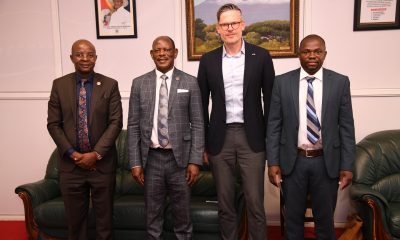

Building Resilience: Makerere Leads Climate Finance Training for Finance Officials
-
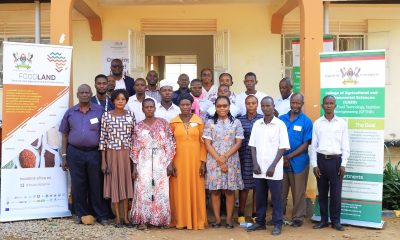

FoodLAND Project Research Dissemination: Nakaseke District Farmers Sensitized on Modern Agricultural Practices & Proper Nutrition
-
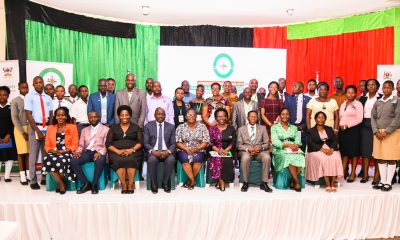

Mak develops new model to aid teaching of Maths in Lower Secondary Curriculum
-
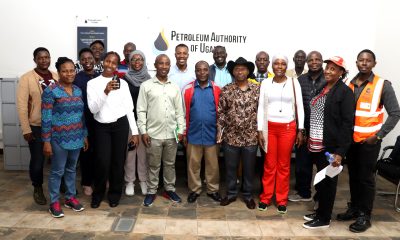

Mak Environmental Economists Explore Uganda’s Albertine Oil Fields: Identifying Research and Collaboration Opportunities
-
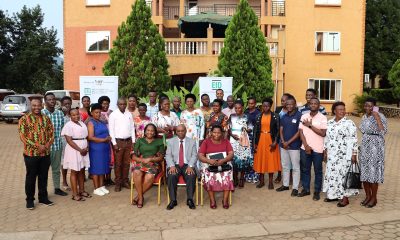

EfD Hosts Policy Dialogue on Energy Efficiency and Reduced Emissions: Hoima Residents Call for Expanded Access to Clean Energy
-
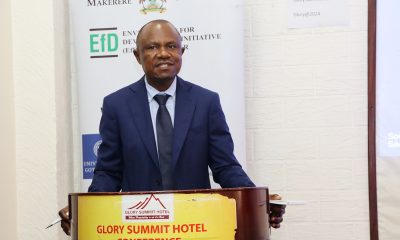

EfD-Uganda Holds Inaugural AGM: Celebrates Milestones and Outlines Future Plans
Health
ENABLING Project Social Scientist Positions: (1) Team Lead (3) Research Associates
Published
1 week agoon
July 18, 2024By
Mak Editor
Makerere University College of Health Sciences-MAKCHS- Centre of Excellence in Women’s Health in collaboration with Makerere University-Johns Hopkins University (MU-JHU) Care Limited received funding from Bill and Melinda Gates Foundation; Enabling Platforms for Maternal Immunization: Uganda (ENABLING Project). The Project aims to identify, characterize, and support the delivery platform, policy, and preparedness requirements for introducing new maternal vaccines. The Project seeks to recruit suitable candidates for the following positions;
Social Scientist, Team Lead (01)
Social Scientist Research Associate (03)
Duty Station: Kampala
Engagement: Full Time
All applications must be submitted to the email: enablingproject71@gmail.com before Monday, 29th July 2024 at 23:59hrs EAT
Health
Call for Abstracts: Makerere Bioethics Conference 2024
Published
1 week agoon
July 18, 2024By
Mak Editor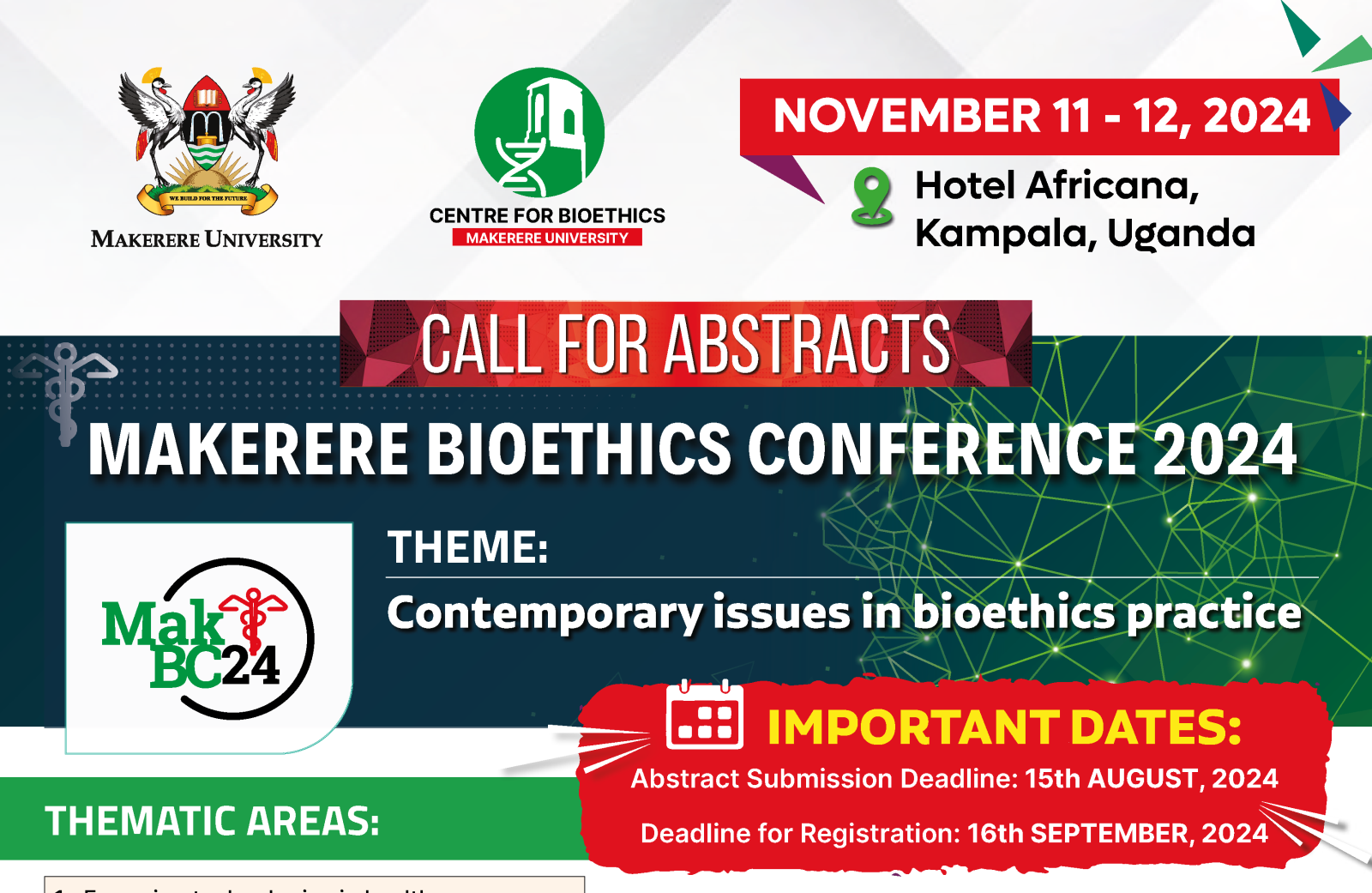
The Centre for Bioethics under Makerere University Biomedical Research Centre (MakBRC) is delighted to announce the MAKERERE BIOETHICS CONFERENCE (MakBC 2024), scheduled to take place on 11th and 12th November 2024 at Hotel Africana, Kampala, Uganda. This year’s theme is ‘Contemporary Issues in Bioethics Practice,‘ and we invite researchers, practitioners, and students to submit their abstracts for presentation.
Thematic Areas:
- Emerging Technologies in Health
- Genetics and Genomics
- Assisted Reproductive Health
- Drug and Vaccination Development
- Nanotechnology
- Robotic Surgery
- Data Science
- Artificial Intelligence and Machine Learning
- Biotechnology
- Big Data
- Digital Health
- Research Ethics
- Research Ethics
- Research Integrity
- Clinical Ethics
- Public Health Ethics
Important Dates:
Abstract Submission Deadline: 15th August 2024
Registration Deadline: 16th September 2024
Submission and Registration:
Abstract Submission: Click here to Submit your Abstract
Online Registration: Click here to Register for the Conference
For more information contact Conference Secretariat:
Department of Anatomy,
Last Floor, School of Biomedical Sciences
Makerere University College of Health Sciences,
P.O Box 7072 Kampala, Uganda.
Email: makbioethicsconference@gmail.com
Website: https://chs.mak.ac.ug/makbc2024
Tel: +256 782 363 996 or +256 772 246 681
Health
Mak Researchers Partner with Safe Bangle Technologies to Roll out a Real-Time Domestic Violence Reporting Bracelet
Published
1 week agoon
July 17, 2024By
Mak Editor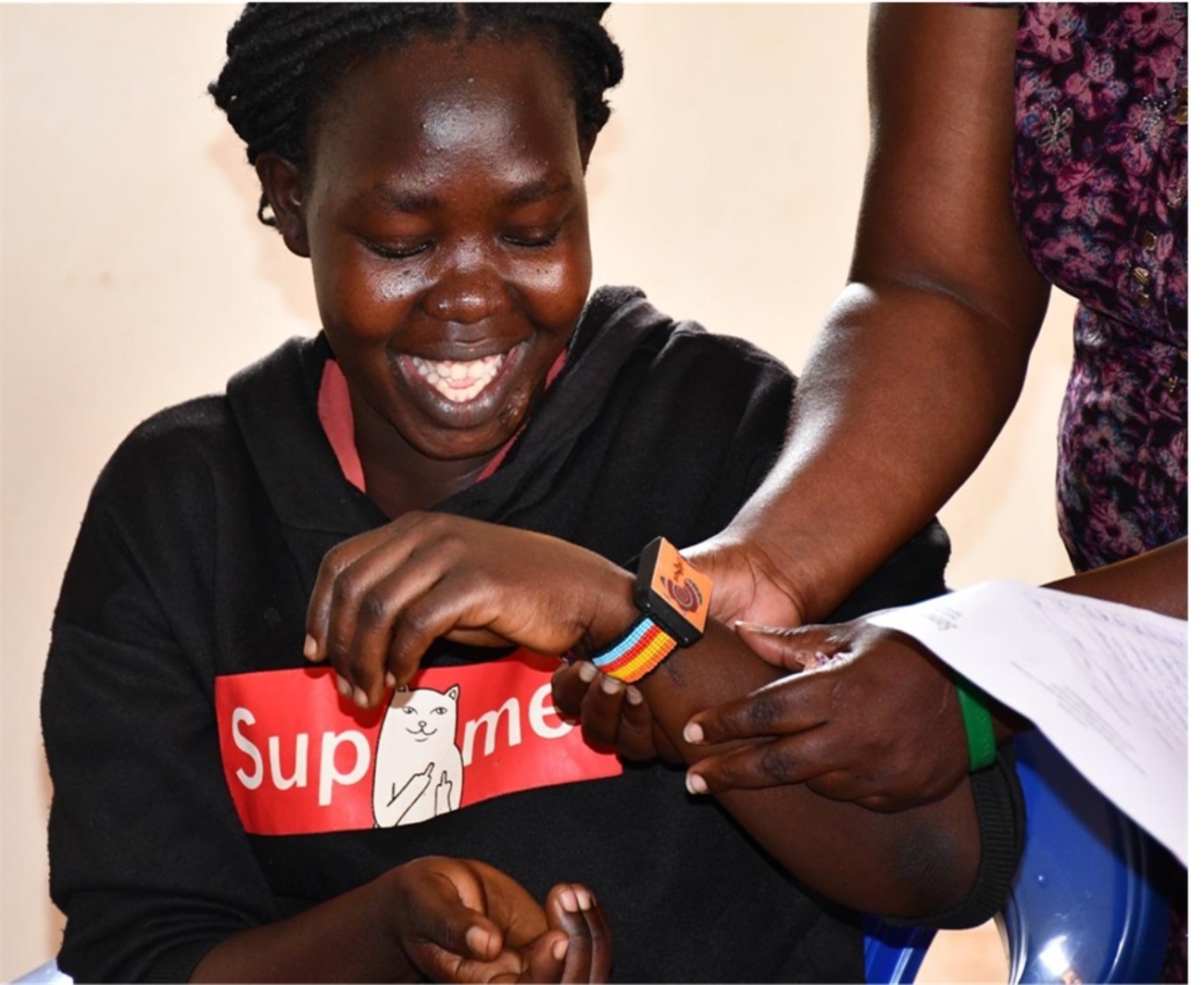
By Joseph Odoi
A Consortium of Researchers from Makerere University School of Public Health/Resilient Africa Network (MakSPH/RAN), Medical College of Wisconsin (MCW), Somero Uganda together with Safe Bangle Technologies have rolled out a real time domestic violence reporting bracelet.
This roll out was made possible with support from the United States Agency for International Development (USAID) under the PARTNERSHIPS FOR ENHANCED ENGAGEMENT IN RESEARCH (PEER) program and the National Academies of Sciences.
Dr. Juliet Kiguli, the Principal Investigator from Makerere University, along with Dr. Roy Mayega, Deputy Chief of Party at RAN, and Dr. Agnes Nyabigambo, the study coordinator, initiated the PEER program to identify entry points for testing SafeBangle Technologies (a social enterprise based at Resilient Africa Network (RAN) with a mission to create a safer and more secure environment for women and children through innovative, affordable, and creative technology solutions to curb GBV in Africa.) wearable safety bracelet in the informal settlements. This decision stemmed from findings of increased intimate partner violence (IPV) and gender-based violence (GBV) in three informal settlements in Kampala, Uganda, following a longitudinal study, geospatial mapping, and interviews. The project, titled ‘The Impact of the COVID-19 Pandemic on Gender-Based Violence among Women and Girls in Informal Settlements in Kampala,’ highlighted the urgent need for affordable and immediate reporting mechanisms for violence.”
‘’While carrying out a study after the Covid-19 Pandemic, we identified gaps when it comes to reporting and response to Gender Based Violence (GBV) among women in informal settlements. Therefore, we used incorporated the SafeBangle intervention to solve the problem of lack of affordable and immediate reporting mechanisms for violence using a bracelet that reports violence in real time’’ explained Dr. Kiguli.
Innovation details
According to Saul Kabali and Messach Luminsa, the innovators behind SafeBangle from SafeBangle Technologies, hosted at the Resilient African Network Lab. ‘’The inspiration behind SafeBangle came from a deeply personal place. ‘’We heard countless stories of women who couldn’t call for help during moments of danger. We were deeply affected by the story of Aisha, a young woman in a rural village who was attacked while walking home alone at night. With no way to call for help, she felt helpless and vulnerable. This incident made us realize the critical need for immediate reporting alert tools, accessible to women like Aisha. We knew technology could play a crucial role and this incident awakened a strong desire in us to create a solution’’
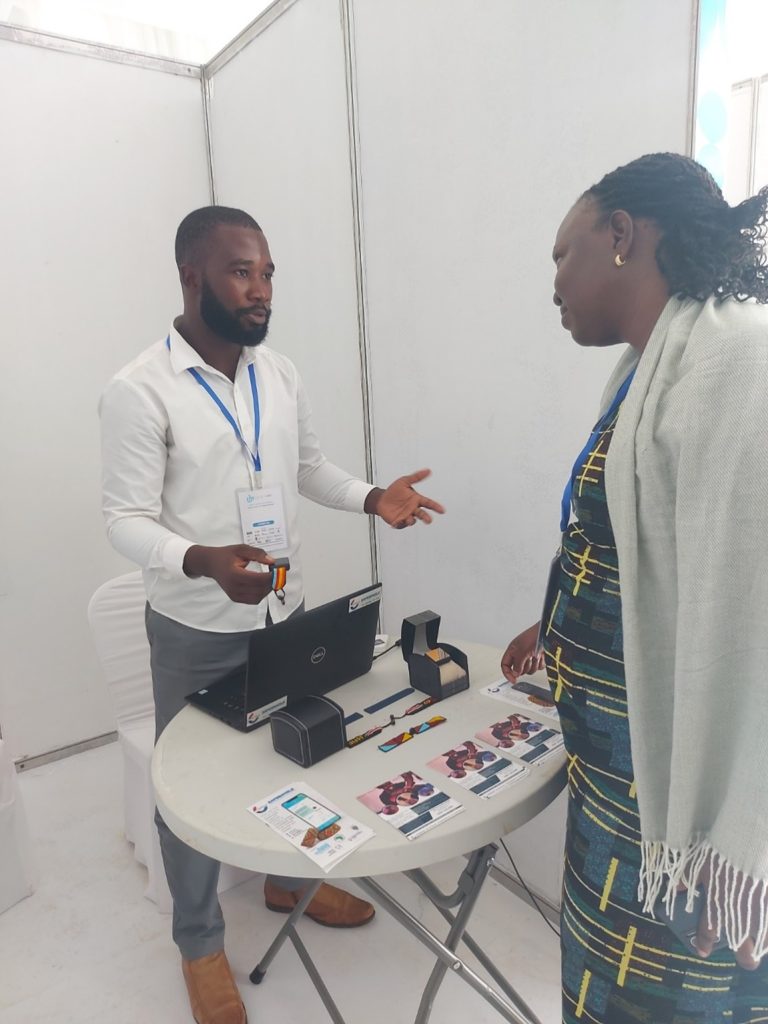
“While developing SafeBangle, we tested with the users in both rural and urban contexts. We piloted the innovation around Kampala with support from Digital Human Righs Lab and Naguru Youth Health Network as well as it in five districts of Karamoja region with support from Save the Children and Response Innovation Lab. Right now it has become handy in Kamapala‘s informal settlements. We envision a future where SafeBangle becomes a standard tool in the fight against GBV, ensuring every woman feels safe and secure as it has the potential to transform how we respond to GBV in Africa” added Kabali.
HOW THE SAFEBANGLE TECHNOLOGY WORKS
The SafeBangle is wearable technology similar to a smartwatch that sends an alarm by SMS to people chosen by a woman herself if she feels threatened.
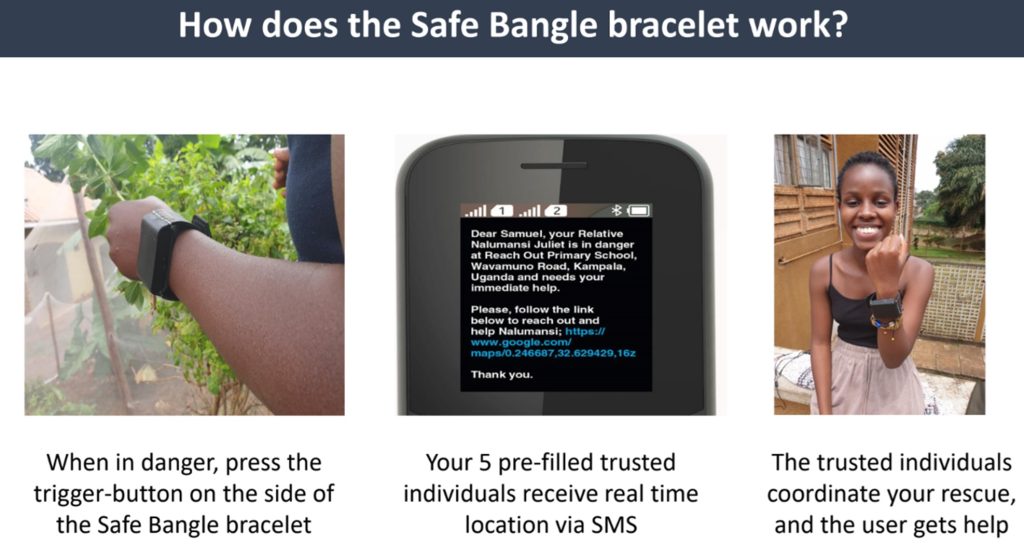
In terms of the acceptability of the SafeBangle innovation as a solution to GBV among at-risk women in informal settlements Of the 72 adolescent girls and women who received the SafeBangle, 22 activated the reporting button, resulting in 19 receiving immediate and appropriate support, including counseling, police intervention, and health services.
All adolescent girls and women who experienced GBV received a phone call from Somero Uganda to discuss the most appropriate intervention, including counseling, police cases being handled by the probation office, referral for health services, and post-exposure prophylaxis. All the GBV survivors received support and are still receiving continuous follow-up.
Researchers conducted a survey among 644 girls and women in Kinawataka (Nakawa Division) and Bwaise (Kawempe Division) to gain insights into awareness and understanding of sexual and gender-based violence among adolescent girls and women in informal settlements. The survey measured socioeconomic factors, mental health symptoms, and exposure to GBV. Focus group interviews were conducted with a separate sample of women over 18 in the settlements to explore responses to GBV.
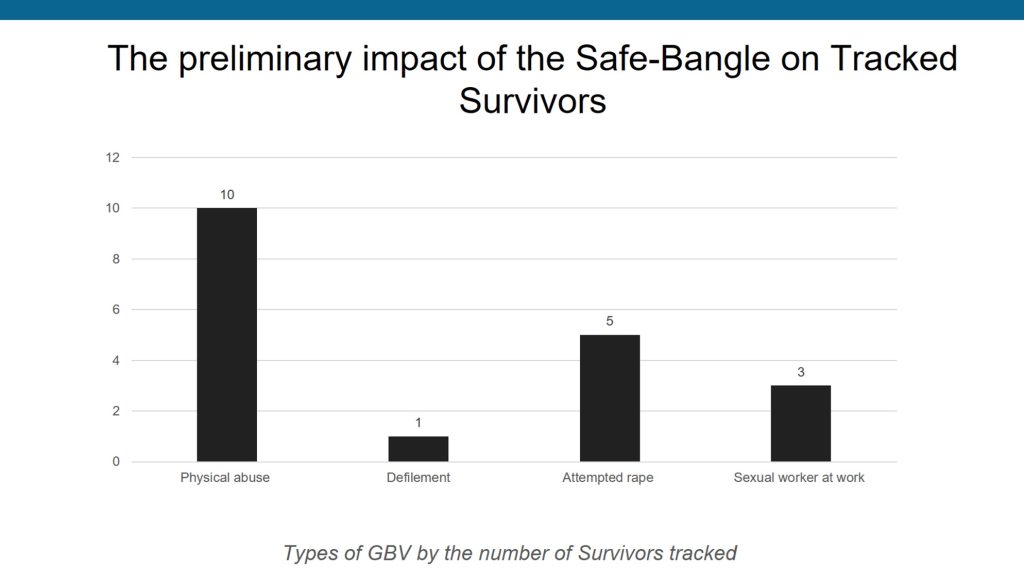
A tabular representation of the key findings and lessons learned from your study on gender-based violence (GBV)
| Key Findings | Lessons learned |
| Prevalence of GBV. – Overall prevalence: 34.1% of women and girls reported experiencing GBV. – Among adolescents (15-19 years): Over 50% reported experiencing GBV. | – The pandemic highlighted the need for accessible and comprehensive support services for GBV survivors. – Schools emerged as crucial safe spaces for girls, emphasizing their well-being during crises. – Economic independence proved crucial, enabling women to leave abusive environments. – Involving men and boys as allies in GBV prevention efforts is essential. |
| Age-related trends | – GBV prevalence tends to decrease with increasing age. |
| Physical and health consequences. | – Women and girls suffered physical violence, injuries, and deaths, primarily from domestic violence and unsafe abortions due to limited healthcare access. – GBV resulted in unintended pregnancies, unsafe abortions, and increased risk of sexually transmitted diseases (STIs) like HIV/AIDS. |
| Social and economic impact. . | – GBV contributed to family breakups, strained marriages due to financial stress. – Economic hardships forced some women and girls into transactional sex, exposing them to further health risks and exploitation. – Pandemic-related job losses and economic constraints increased financial dependence on abusers, trapping women in violent situations. – School closures and increased household responsibilities limited women’s job opportunities and subjected them to sexual harassment. |
| Psychological effects | – Survivors experienced guilt, shame, anxiety, fear, and suicidal thoughts due to ongoing abuse. |
| Long-term effects | – Post-COVID-19, survivors faced disrupted education, early marriages, pregnancies, social stigma, and persistent mental health issues. |
Reproductive Health Consequences: GBV resulted in unintended pregnancies, unsafe abortions, and increased risk of sexually transmitted diseases (STIs) like HIV/AIDS.
Family Breakdown: The rise in GBV led to family breakups as women fled abusive relationships. Marriages were strained due to increased financial stress.
Transactional Sex for Survival: Desperate for basic needs due to job losses and economic hardship, some women and girls resorted to transactional sex, exposing them to further health risks and exploitation.
One study participant stated, “The time of COVID-19 was so terrible for some of us. We in fact got a lot of diseases from it because you would want to get food and didn’t have money. That way you would be forced to get a man who would use you and pay.” – (FGD_Girls_19–24years_Kinawataka).
Economic Effects: COVID-19 restrictions caused job losses and limited economic opportunities, particularly for women in the informal sector. This increased financial dependence on abusers and trapped women in violent situations.
Limited Access to Employment: School closures and increased household chores limited women’s ability to seek employment, perpetuating gender inequality in the workforce. Some faced sexual harassment from potential employers.
Psychological Effects: Survivors of GBV experienced guilt, shame, anxiety, fear, and even suicidal thoughts due to the constant threat and unpredictability of abuse.
Post-COVID Effects: GBV survivors faced long-term consequences, including disrupted education, early marriage, early pregnancy, social stigma, and persistent mental health issues.
Lessons learned
The pandemic highlighted the need for accessible and comprehensive support services for survivors of GBV, the significance of schools as safe spaces for girls, and the need to prioritize their well-being during crises. Economic empowerment emerged as a significant protective factor for women and girls. Those with greater economic independence were better equipped to leave abusive environments and secure their safety and well-being, while dependent ones suffered abuses. Engaging men and boys as allies in the fight against GBV and involving them in prevention efforts can help promote positive behavior change and foster more equitable relationships.
Recommendations
To address GBV against women and girls, the researchers recommend the following moving forward;
- There is need to integrate technology-driven solutions like SafeBangle into national GBV prevention and response strategies. SafeBangle can be a valuable tool for policymakers as cases of violence that would have gone unreported will be brought to light and the would-be victims will be able to get immediate help from trusted relatives and friends.
- Provide economic opportunities and vocational training for women and girls to enhance their financial independence and reduce vulnerability to violence. There is therefore a need to introduce education and training programs that empower women and girls, by providing them with skills, resources, and opportunities to start their own ventures and to participate fully in community affairs.
- Strengthen and enforce existing laws and policies related to GBV, including laws against domestic violence, child marriage, and sexual assault without discrimination be it for law enforcers, leaders, and employers where such cases were suffocated. Ensure that perpetrators are held accountable through swift and fair legal processes that have no room for corruption.
- Establish and promote effective, accessible, and confidential reporting mechanisms for GBV incidents that provide confidence and can be trusted by survivors to enhance reporting of such incidences of GBV. Community Engagement and Involvement: Involve community leaders, religious leaders, and elders in discussions about GBV to promote gender equality, change social norms, and reinforce the message that violence against women and girls is unacceptable.
- Launch extensive public awareness campaigns to challenge harmful gender norms, report cases of GBV, raise awareness about the consequences of GBV, and promote positive behaviors and attitudes towards women and girls.
- Implement comprehensive sexuality education in schools and communities, educating young people about healthy relationships, consent, and reproductive rights to be able to make informed decisions about their own lives and well-being.
- Engage men and boys as allies in the fight against GBV, encouraging them to challenge harmful masculinity norms and behaviors. This will help minimize GBV because mostly they are the perpetrators. Strengthening Support for Survivors: Provide ongoing support and follow-up services for survivors of GBV mostly counselling services to aid their recovery and facilitate their reintegration into society.
- Provide ongoing support and follow-up services for survivors of GBV, mostly counseling services to aid their recovery and facilitate their reintegration into society.
- Provide avenues to seek free or subsidized services by survivors of GBV medical services and legal processes by survivors of GBV to enhance reporting of GBV cases, access to medical care, counseling, legal support, and other essential services.
- Encourage and support more research and innovations like SafeBangle to curb incidents of GBV.
- A comprehensive and inclusive approach is required. The efforts should involve government institutions, civil society organizations, community leaders, and individuals working together to address the root causes and provide support to survivors.
- Involve media in GBV prevention activities and for enhancing campaigns against GBV mostly on radio and TV.
MORE ABOUT THE STUDY
The core project team, included researchers at Makerere University School of Public Health (MakSPH), Medical College of Wisconsin (MCW) led by Prof. Julia Dickson-Gomez, SafeBangle Technologies, and Somero Uganda, a community-focused NGO, began the project by designing their research protocol and taking a CITI Program course on human subjects social/behavioral research. Team members also met with the Ministry of Gender, Labour, and Social Development (MGLSG) in support of the gender-based violence policy process, Ministry of Health and local government. They also established relationships with the Kampala Capital City Authority (KCCA) and Nakawa and Kawempe probation offices to support legal processes for the GBV survivors. SafeBangle Team also received an award from Defenders Protection Initiative.
Trending
-
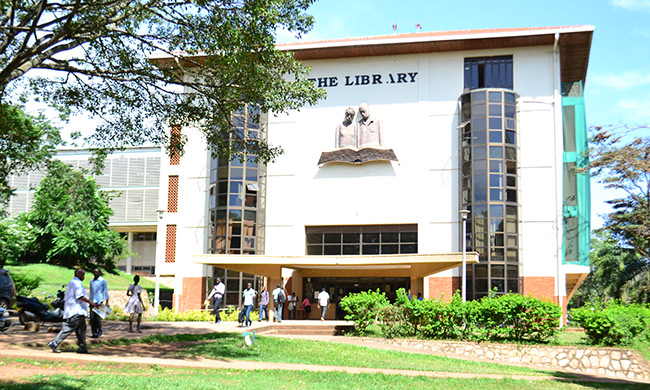
 General1 week ago
General1 week agoDiploma/Degree Holders Admission Lists 2024/25
-
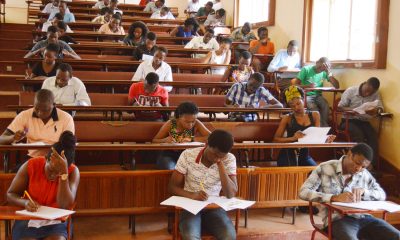
 General1 week ago
General1 week agoAdvert: Mature Age Entry Scheme – Private Sponsorship 2024/2025
-

 General5 days ago
General5 days agoProf. Buyinza Mukadasi Appointed Acting DVC Academic Affairs
-
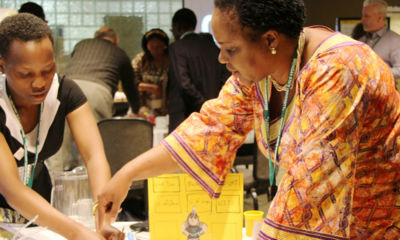
 General1 week ago
General1 week agoAfrican Futures Research Leadership Program: Cohort 5 – Call for Scholars
-
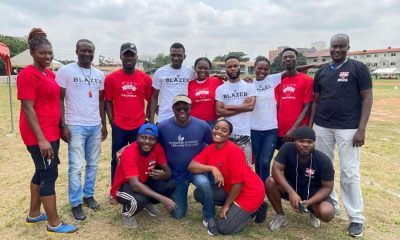
 General1 week ago
General1 week agoNow Open: CADFP Project Requests
